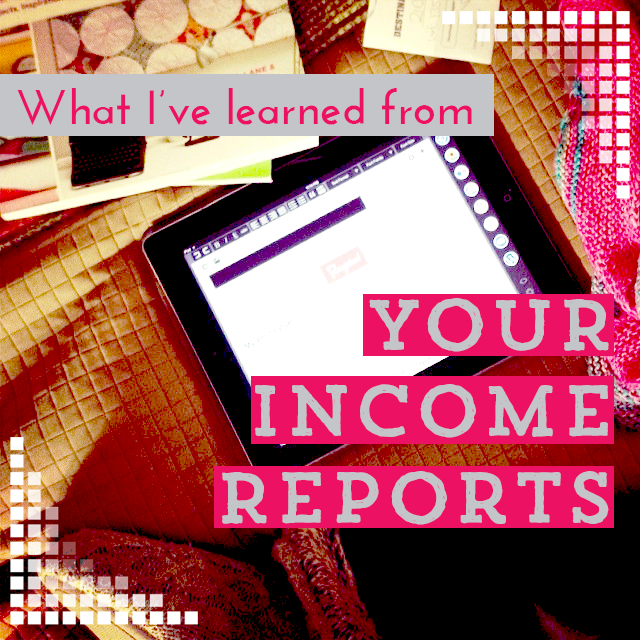Over the last two weeks, I've shared the Real Numbers, via Income Reports, of other makers just like you. (Find Income Reports of Knitwear Designers here and Handmakers here.) This whole project has opened a lot of conversations and has taught me a lot. Today I’m distilling it all into 5 lessons.
So here's what I learned from looking at the numbers, feelings, and reflections of over a hundred makers and designers:
1. MANY many businesses (ie, people who specifically marked it as a “business” and not a “hobby”) had no idea what their numbers are, in a single month.
I got many messages from makers who wanted to fill it out, but they couldn't. They didn't know where to start in gathering their numbers, or maybe even what the terms meant. This bummed me out, because you can't fix what you don't measure. There's no way of knowing if what you're doing is working unless you've got a way to measure it.
(I share the very beginnings of how to track your numbers in this video.)
2. Many makers don’t know what they want.
When I asked in the survey “How do you feel after answering these questions?” the responses ranged from “Depressed” to “Scared” to “Excited!” That's perfectly normal. I feel all of the above, just about every week. That's just part of being an entrepreneur and building something completely new.
But what stood out for me were the number of respondents who said they didn't know how to feel about it. Is it good? Bad? They didn't know what their numbers meant for their business health. That makes sense, because numbers don’t mean anything on their own.
For example, let’s say you made $20 yesterday. That might be an awesome day if you sell $5 products, or if you don't make daily sales. It might be a miserable day if you sell $500 products, or if you want to make $2,000 a week.
If you don't know what you want from your business, you won't have any context for what a specific number means. Remember: No one number has meaning without context.
Solution: Put them in context! Get clear on what it is you want from your business by defining success.
3. Many makers feel disappointed and overwhelmed.
What's interesting is that disappointment and overwhelm aren’t correlated to the income numbers. We all feel it at one time or another. But it did seem to be correlated with how much the respondent understood cause and effect in their business. In other words, if a maker is measuring other numbers (conversion, email subscribers, etc.), they are less likely to be overwhelmed. Why? Because they know what they can do. They recognize that they have options, and that they can experiment. I've seen this to be true, time and again. Just understanding the variables that affect your sales, and how you can experiment with those variables to increase sales, can keep you from feeling so hopeless about your business.
4. When you focus in on what matters in your business, everything else becomes obvious.
Several of your fellow readers wrote me to say, “After doing these numbers I realized that I've been wasting my time worrying about X” (X = all the things that have nothing to do with the 4 important business foundations. All the things you think you “should” do).
5. You are not alone.
Whether you don't know what your numbers are, you don't know what you want out of your business, or you just feel overwhelmed with figuring it all out – you're really, really not alone. There are hundreds of other makers who feel just like you.
Good news: this confusion and overwhelm can be overcome by focusing in on what you want and building a business based on that. You don't have to feel like this forever. I've worked with dozens of makers who feel a zillion times better about their business. In fact, I created a program to help you do exactly that, and it's open now (come on inside here).
What did you learn from the Income Reports?

